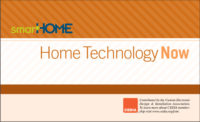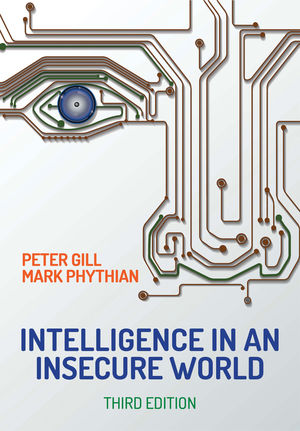The Revolutionary Trends in Home Automation

When invited to speak about the industry’s emerging trends, I often pose the question, “Do you think the CEDIA industry is in an evolutionary or revolutionary phase?” In most years, the attendees and I agree we are in an evolutionary time in which new products are iterative improvements upon existing products. There is nothing wrong with evolutionary phases; in fact, it is those incremental improvements that contribute to refining products to meet customers’ ever increasing expectations. Occasionally, however, products come out that have a profound impact, from both a societal and an industry perspective.
I recently had another opportunity to teach my emerging trends course, and the class came to the conclusion I hoped they would — 2016 is shaping up to be a revolutionary year. For me, the main reason is the Amazon Echo.
Voice Control: The Year Of Alexa
Working for a not-for-profit trade association, it is best practice to not talk about specific products or companies and instead speak of the industry as a whole. However, Amazon’s Echo is a product that, in my opinion, is so revolutionary it cannot be avoided. While sitting in Rich Green’s ISE class back in February, he boldly and unequivocally declared 2016 “The Year of Alexa.” Rich, being the futurist extraordinaire he is, was spot on.
In case you haven’t heard of Amazon Echo, it is a cloud-enabled speaker with very sophisticated microphones that allows users to perform specific functions. All you have to do is say the name “Alexa,” give it a command and, just like a genie in a bottle, it will do your bidding.
To be fair, Echo isn’t the first commercially available cloud-based voice device; that distinction goes to Apple’s Siri. However, at least to me, it feels like the first truly robust voice-activated device that performs consistently and actually improves quality and ease-of-life using Amazon’s deep learning/artificial intelligence engine in the back-end.
Much like most cloud-based/Internet-connected devices these days, Amazon has opened up their SDK (software development kit), and there has been a rush of integrations for home controls. One of the most important integrations for our industry right now is lighting control. There are multiple hubs that, through connected luminaires (bulbs) work very well with Echo.
I have used Echo in my house for approximately six weeks and have been testing connected luminaires for some time. On my main floor, I have my overhead kitchen lights and two retrofitted pendant lights — all on one circuit —connected and controllable via Echo. For the last few years, my 75-year old father, who suffers from several serious medical conditions, has lived on my main floor. As his health has deteriorated, he has found it difficult to get around, particularly at night. He has resorted to keeping a flashlight by his nightstand to help guide him to the restroom at night. With Echo, he easily raises the lights to the desired level without fumbling around for a light switch or flashlight.
There are new use cases coming out daily, including a feature that allows users to send messages to contacts through voice control in the event of an emergency. In the middle of the night, being able to quickly state your emergency is much faster and effective than fumbling around for your panic button or phone.
While Echo is likely the first real contender for voice control in the home, it won’t be the only option for long. As such, this article should not be construed as a flagrant endorsement of one product, but as an example of the opportunities coming our way. Other companies are looking at creating robust voice control solutions for the luxury market. One such company is Josh.AI, based in Colorado, which is specifically designing solutions with deep learning and artificial intelligence to control a home and accept sophisticated commands through voice. Other traditional control manufacturers like Crestron, Control4 and Savant have also been working with voice control integration over the last several years.
To learn more about emerging trends, stay tuned for new white papers and webinars CEDIA will be releasing in the coming months. Visit www.cedia.net for more information.
Looking for a reprint of this article?
From high-res PDFs to custom plaques, order your copy today!








